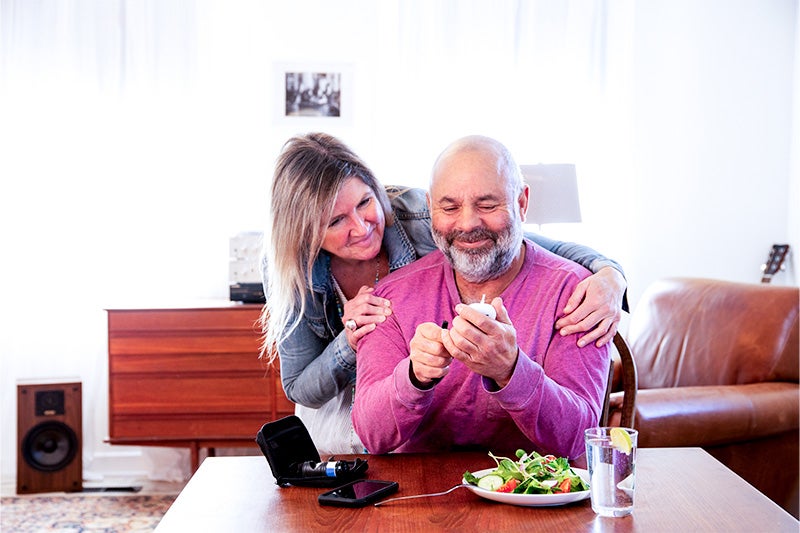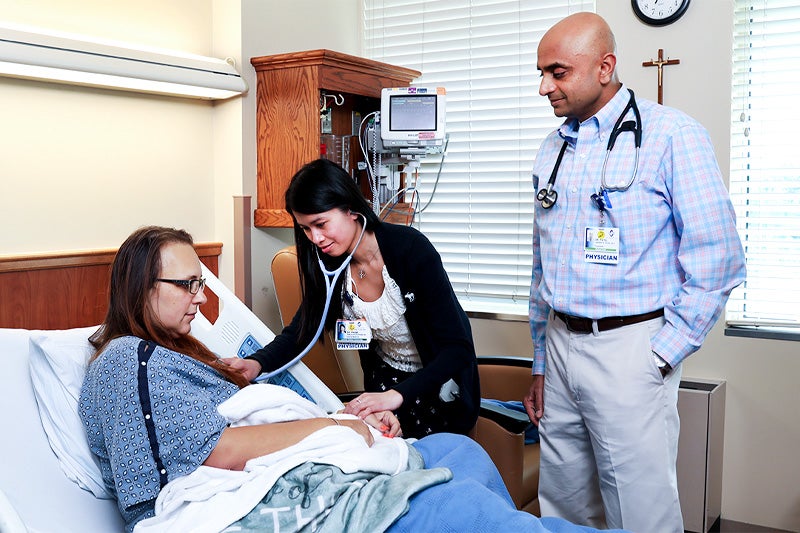5 Ways to Avoid a Heat Stroke and Heat Exhaustion
April 27, 2023As the summer months approach, it is important to know how to stay cool and hydrated.
Extreme heat can be described as summertime temperatures that are hotter or more humid than usual. A humid or muggy environment can make individuals feel hotter than it actually is. Extreme heat can lead to several heat-related illnesses such as heat exhaustion or heat stroke. These conditions occur when the body is not able to properly cool itself.
The body typically cools itself by sweating, but during extreme heat, sweating may not be enough. In these cases, body temperature rises quicker than sweating can cool it down. Excessive body heat can harm the brain and other vital organs.
Some factors that can increase the risk of heat exhaustion or heat stroke include:
- High levels of humidity
- Obesity
- Fever
- Dehydration
- Heart disease
- Poor circulation
- Sunburn
- Alcohol use
Who is Most at Risk?
Older adults, young children, and individuals with mental illness or chronic disease are at highest risk for developing a heat-related illness. However, even young and healthy individuals can be affected by extreme heat if they do not properly cool themselves and take preventative measures.
What are the symptoms of heat illness?
According to the Centers for Disease Control, watch for headache, nausea, dizziness, weakness, irritability, thirst, heavy sweating, and elevated body temperature. Many people may also experience muscle cramps.
As heat exhaustion progresses into heat stroke, the person may become confused or delirious, lose consciousness, experience seizures, and will have hot, dry skin or profuse sweating and a very high body temperature (over 104 Fahrenheit).
Are heat-related illnesses dangerous?
Yes. Heat exhaustion means the body is unable to cool itself adequately. Immediately stop activity such as sports or work, get the person into a cool space out of direct sunlight, sip cool water or sports drinks, and apply ice or cool water. If not interrupted, heat exhaustion will progress to heat stroke.
Heat stroke is a medical emergency. It can result in death or disability if not treated promptly. Call 911 and immediately take steps to cool the person, such as moving them into an air conditioned building, removing excess clothing, and applying cool, damp cloth. Do not attempt to give anything to drink. If an air-conditioned space is not available, move them into the nearest shade.
Here are five suggestions to avoid heat exhaustion and heat strokes:
- Stay Hydrated. Drinking plenty of non-alcoholic fluids is one key way to maintain a healthy body temperature during extreme heat. During exercise or outdoor work, keep a drink with electrolytes handy to help replenish fluids, salt and other substances lost through sweat.
- Get Used To The Heat. If you spend most of your time indoors and suddenly spend multiple hours out under the sun, your body may not be ready for that amount of heat exposure. It is better to gradually expose yourself to the heat as the weather warms up, a process called acclimatization.
- Maintain a Healthy Weight. One risk factor that can increase the likelihood of developing a heat-related illness is obesity. Carrying excess weight causes the body to retain more heat and makes it harder for the body to control its internal temperature when temperatures get high.
- Wear appropriate clothing. You can help limit sun exposure by wearing wide-brimmed hats and light, loose, fitting clothes.
- Mind the temperature and time. It is important to be mindful of the heat index, which is the combination of air temperature and humidity. If the heat index is over 90, be mindful of how much time you spend outdoors. Early mornings and late afternoons are typically the coolest times of the day and might be the safest times to spend hours outside. Also, minimize your time in direct sunlight. Studies show that direct solar radiation raises the air temperature at least 10-15 degrees compared to shady areas nearby.




